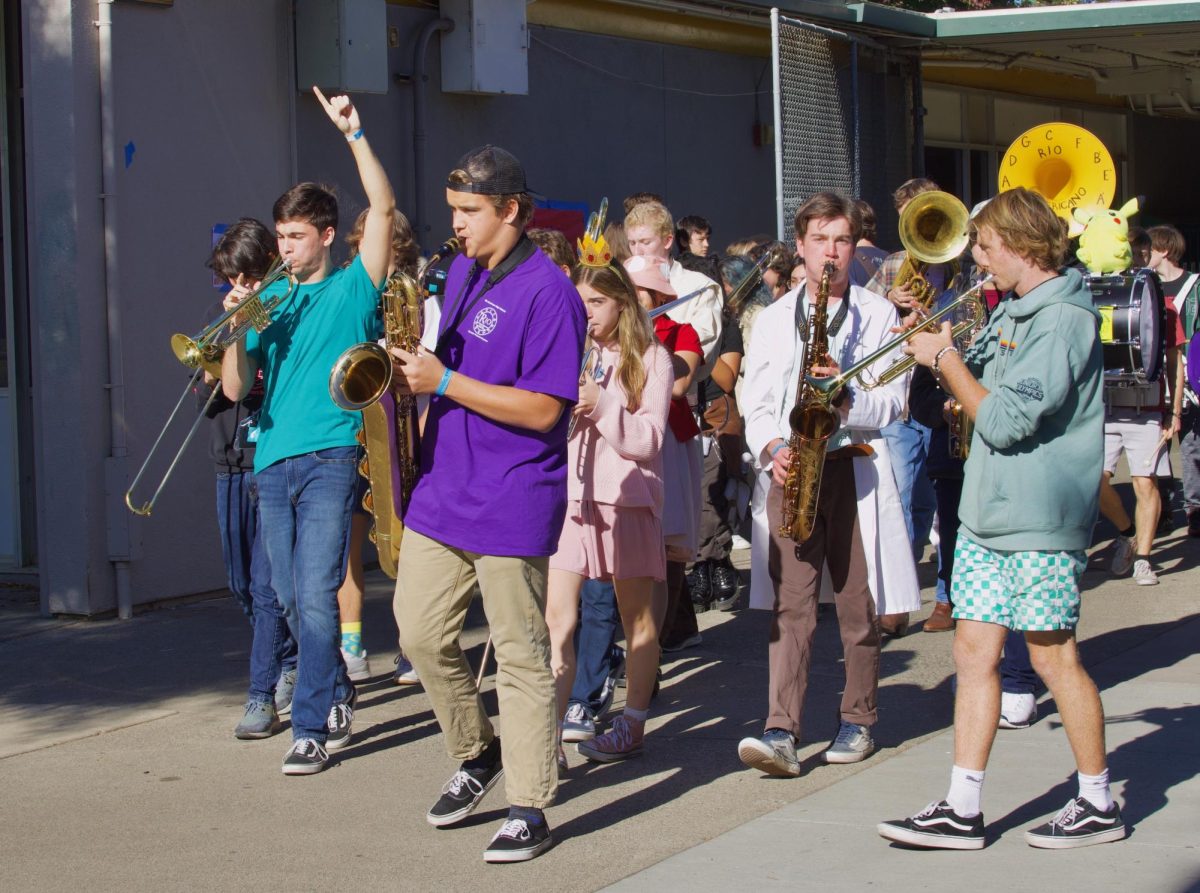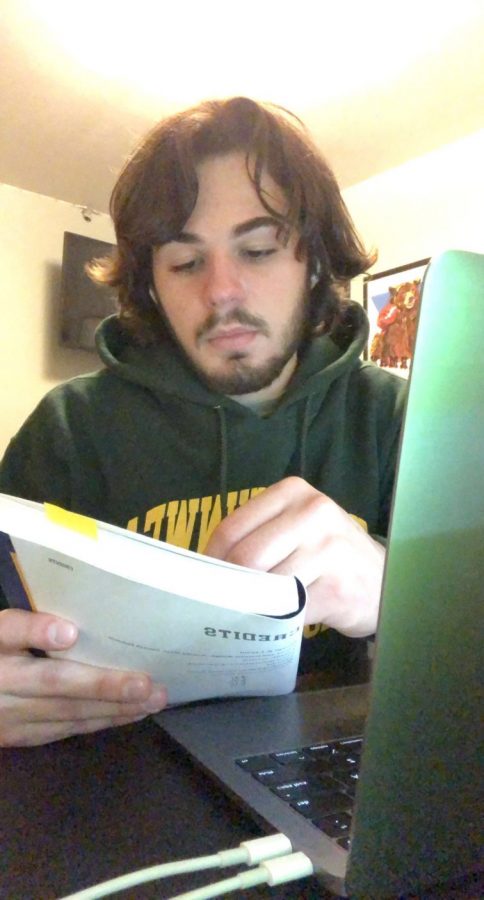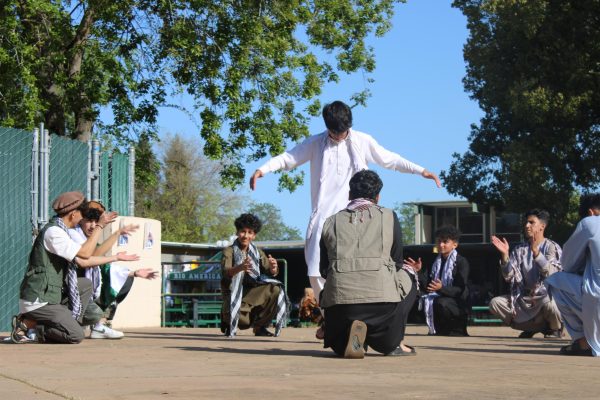Managing “Zoom fatigue” halfway through the school year
Students and teachers have all developed strategies to combat dips in motivation during distance learning.
Photo By Isabella (Isa) Searle
Senior Ryan Wilson studies his English book while completing homework for his online classes during the hour-long lunch break.
Over the course of the first semester, it was common for any student or teacher to experience some form of “Zoom fatigue”. Everyone had a different experience last semester, but one thing is clear: Zoom classes made both positive and negative impacts on student’s motivation, mindsets, and goals.
Some students came into the year with a set plan on how to achieve their goals and perform like this was a normal year. For some, this worked great, but for others, it wasn’t enough to keep their performance up.
“Distance learning definitely changed the way I perform as a student,” freshman Samantha Courtade said. “I’ve always done well in my classes but this year I couldn’t stay focused on assignments that would have been a breeze to me last year. As much as I tried to make a plan and stick to it, I was never able to get in the groove of things.”
Other students saw a dip in their motivation at one point in the semester, but found ways to get back on track.
“Although Zoom classes began to feel really hard for me about halfway through the semester, I got myself back on track within a few weeks,” Junior Camille Davis said. “I began to keep track of my work in a planner and reminded myself that nothing is going to be perfect this semester, which helped me gain back my motivation.”
Something that made staying focused more difficult for students was the amount of time spent on a computer that was required in order to do well. Hours of homework on top of hours of school sometimes felt overwhelming and unachievable.
“No matter how determined I felt at the beginning of the day, after six hours of Zoom calls I usually felt tired and unmotivated,” Courtade said. “It was too hard to balance at most times.”
Despite the challenges mentioned above, some students felt more motivated than normally during distance learning.
“In years past, I never liked doing homework, so after school I would never pay much attention to it,” senior Ryan Wilson said. “At the beginning of the year, I found myself doing a lot more of the assignments. I think that it’s because the assignments were easily accessible and teachers would give us time at the end of class to finish our homework.”
One aspect of distance learning that students felt made it easier to stay focused was the scheduling, making it so you only had to attend each class twice a week.
“ I gained motivation to do my schoolwork because of the modified schedule because the school days weren’t as long and time consuming so doing homework didn’t feel like a lot of extra work,” Wilson said.
Psychology teacher Justin Mason, who was used to a high level of participation from students, has seen a significant difference in his students during the distance learning format.
“I think distance learning has been terrible for student’s motivation,” Mason said. “I take pride in the level of engagement that I can get students in during my classes. I have been really disappointed that there are so many distractions and technological issues that negatively impact the students’ ability to focus and be engaged in the material.”
Though he knows it can be hard, Mason has some ideas on what can make distance learning a little less challenging.
“I would recommend exercise before and after Zooms,” Mason said. “Even if it’s just to take a walk. Focusing on making small gains or success. Finishing a project or assignment, and taking a break to feel good about it. Reward yourself with some social activity, walk with a friend or even play video games online with someone you can chat with, working together towards a common goal.”
The first semester felt different for everyone. Motivated or unmotivated, students felt the several effects of distance learning and did what they could with the situation. As the second semester begins, students will continue to navigate these waters and find what works best for them.

































